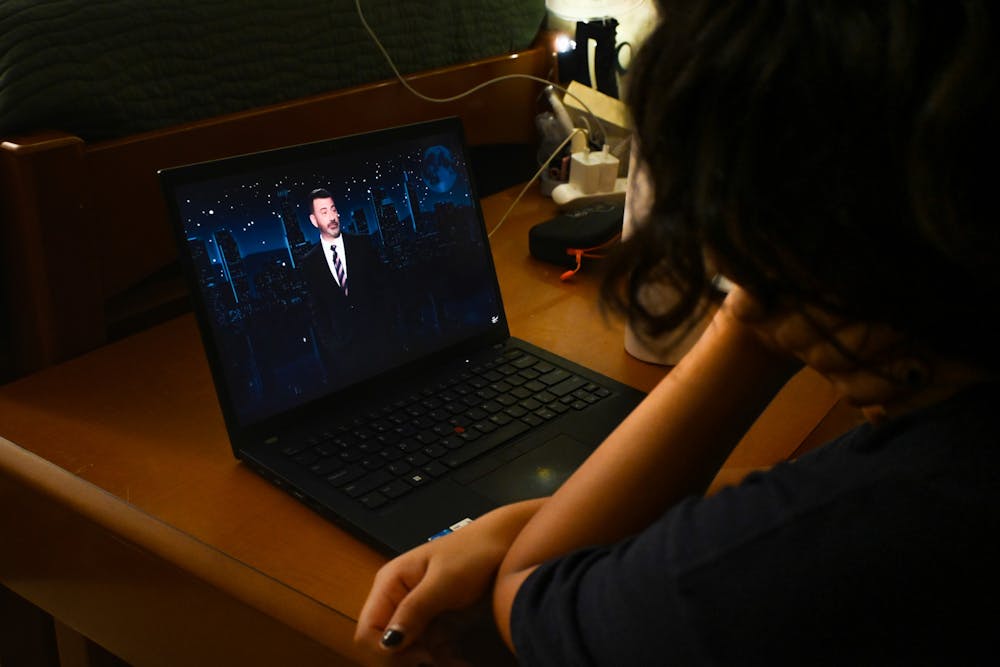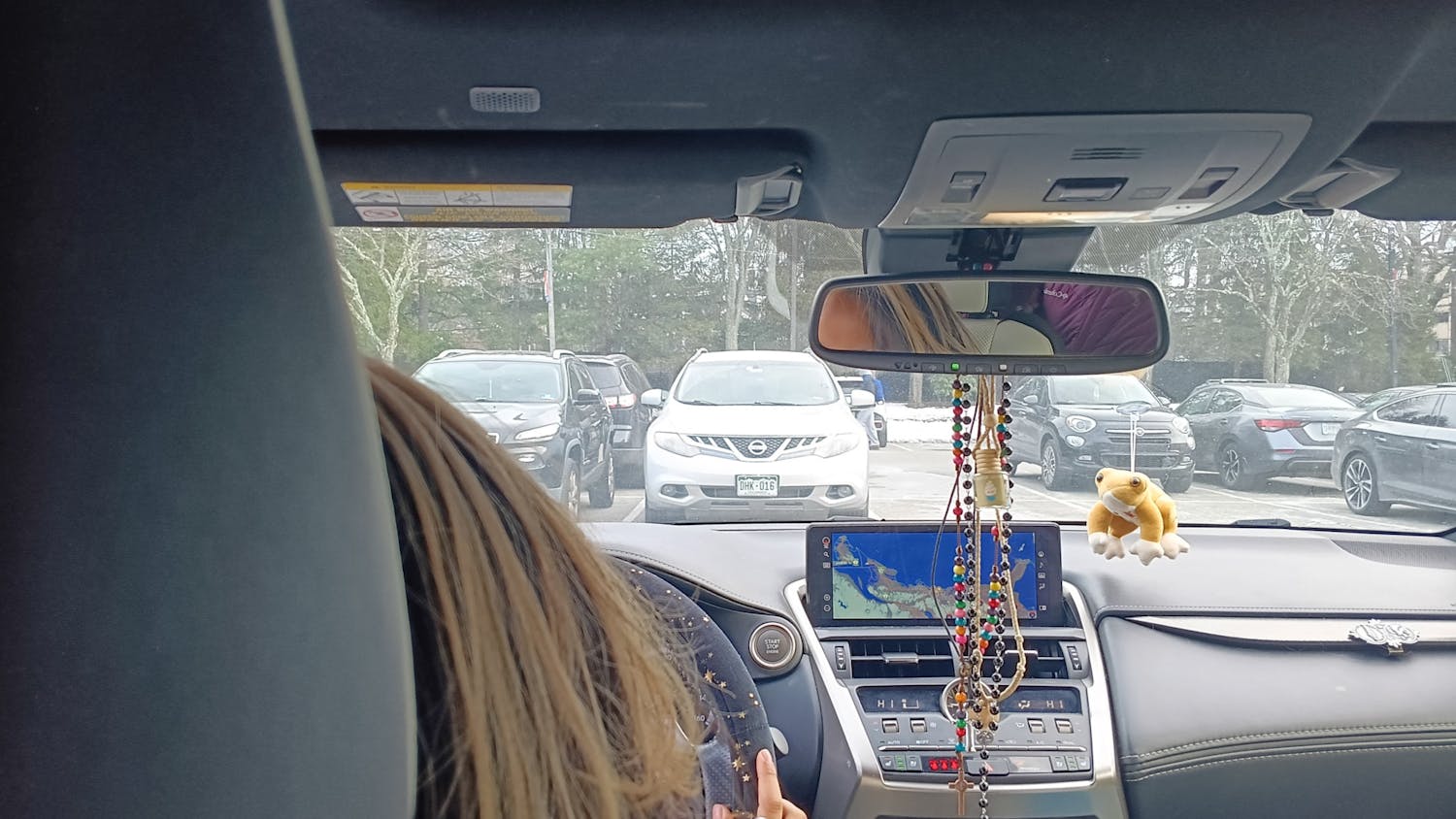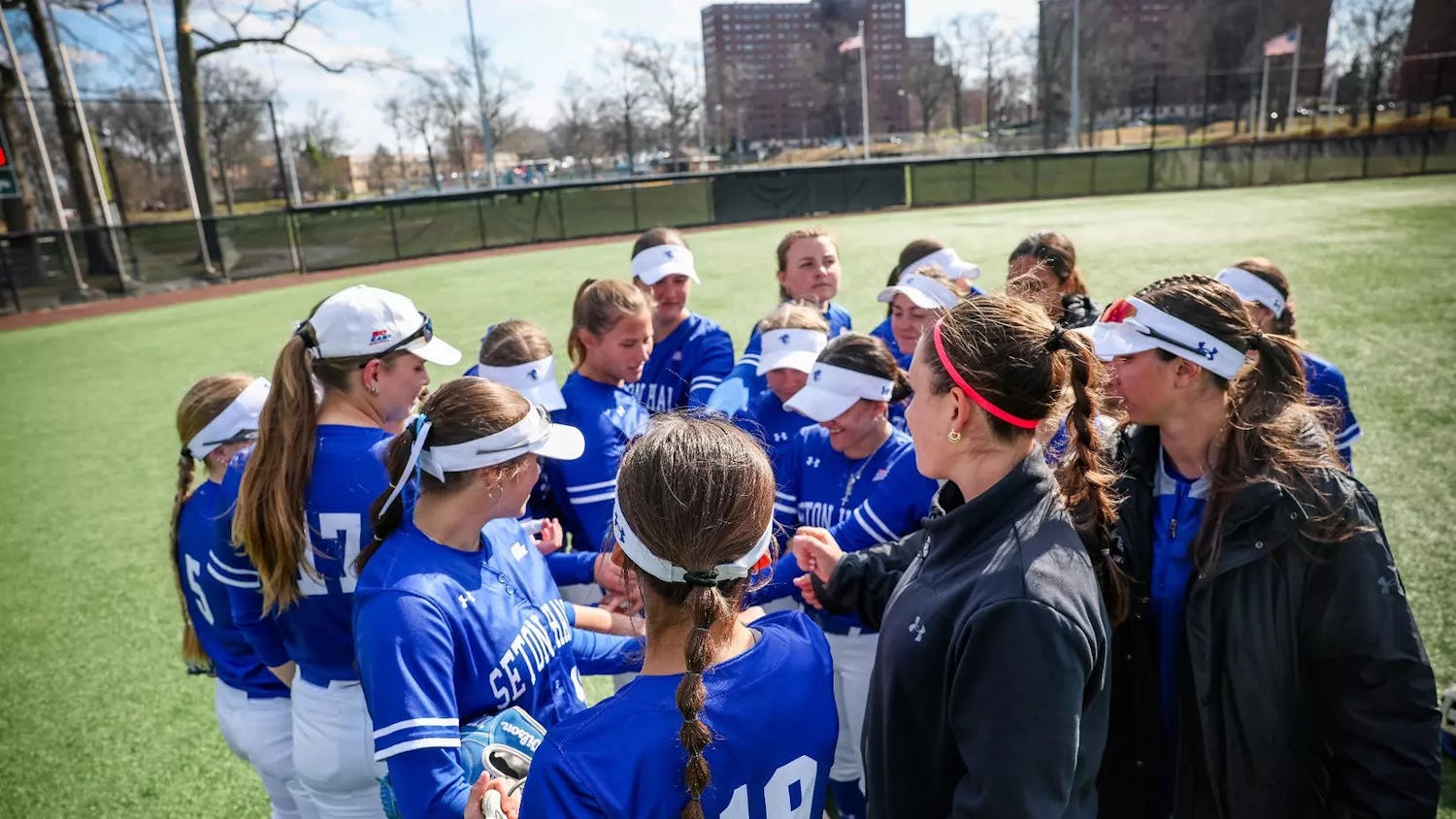Jimmy Kimmel’s late-night show, “Jimmy Kimmel Live!” became the center of a national controversy after his monologue about the assassination of Charlie Kirk sparked backlash from conservative figures, media outlets and government officials.
Within days, ABC suspended the show, raising questions about free speech, corporate influence and the role of political pressure in shaping the media.
Kimmel’s ‘Controversial’ Monologue
ABC announced on Sept. 17 that Jimmy Kimmel’s late-night show was pulled indefinitely following remarks about the politics of Kirk's assassination.
In his monologue on his Sept. 15 show, Kimmel said, “We hit some new lows over the weekend with the MAGA [Make America Great Again] gang desperately trying to characterize this kid who murdered Charlie Kirk as anything other than one of them and doing everything they can to score political points from it.”
Kimmel then joked about President Donald Trump’s response to a reporter who asked him how he was coping with Kirk’s death. Trump said he was “very good” and then quickly shifted the conversation to the new ballroom being added to the White House.
“He’s at the fourth stage of grief: construction,” Kimmel said.
Backlash and Political Response
On Sept. 16, backlash began to flood X. Conservative influencers and media outlets criticized Kimmel and Elon Musk, the owner of X, called Kimmel “disgusting” for his jokes.
Fox News addressed Kimmel’s comments in the evening on their round-table talk show, “The Five.”
“Isn’t it easier for them to pull the plug on someone like Jimmy Kimmel, given the political and media vibe that we are in right now?” one of the show’s hosts, Lisa Kennedy Montgomery, said.
On Wednesday, Brendan Carr, the chairman of the Federal Communications Commission (FCC), appeared on “The Benny Show,” hosted by Benny Johnson, a conservative activist.
Carr said Kimmel’s comments were part of a “concerted effort to lie to the American people.”
“We can do this the easy way or the hard way,” Carr said. “These companies can find ways to change conduct and take action, frankly, on Kimmel or there’s going to be additional work for the FCC ahead.”
That evening, Kimmel’s show was suspended.
Sinclair Broadcast Group, which owns nearly 40 ABC stations in the U.S., said in a statement that the company “objects to recent comments made by Mr. Kimmel regarding the assassination of Charlie Kirk.”
Nexstar, operator of 28 ABC affiliates, also released a statement stating, “Nexstar strongly objects to recent comments made by Mr. Kimmel concerning the killing of Charlie Kirk and will replace the show with other programming in its ABC-affiliated markets.”
The move prompted a response from Trump on Truth Social, who celebrated Kimmel’s suspension.
“Great News for America,” he said. “Congratulations to ABC for finally having the courage to do what had to be done. Kimmel has ZERO talent.”
Seton Hall students like Nevil Rogen, a freshman biology major, voiced strong feelings about Kimmel’s pulling.
Rogen said he was “upset and repulsed” by Kimmel’s suspension.
“I don’t think he should be censored,” Rogen said. “Once we start suppressing people, I don’t think that’s good for the climate of speech.”
The Question of Political Coercion and the First Amendment
Last month, Nexstar announced a $6.2 billion deal to acquire TEGNA Inc., which owns 64 other television stations.
Under current FCC law, these companies cannot merge because they would represent 80% of TV households in the US.
To that end, Nexstar requires the FCC to make an exception to the law to complete its desired merger. According to Variety, Nexstar declined to comment on whether the pending deal influenced its decision to preempt Kimmel.
Questions have been raised about whether the FCC exceeded its authority by pressuring a private company in a way that could conflict with First Amendment protections. The Supreme Court ruled in 1963 that the government cannot take such action.
The FCC’s website also states that the agency is “barred by law from trying to prevent the broadcast of any point of view.”
The First Amendment does not prohibit private companies from taking action against an employee based on speech. In other words, ABC can rightfully suspend Kimmel if they decide that his speech does not align with their values or ethics.
Ivan Saperstein, an adjunct professor who teaches Media Law at SHU, weighed in on the subject.
“The First Amendment protects against the government limiting free speech and free communication,” he said. “Jimmy Kimmel’s [owned by] a private entity, Disney or ABC, so in that sense, it is not directly implicating the First Amendment.”
“However, as I understand the story, and it’s only from media reports, there were some statements, particularly by the chairman of the FCC, that may have suggested that Disney take that action,” Saperstein said. “In which case, that may be considered the government limiting speech, which would implicate the First Amendment.”
David Berman, an assistant professor in the Department of Communication, Media and the Arts, said he believes this “is just as much about corporate censorship as government censorship.”
“The Trump administration is attempting to jawbone ABC and Disney into cancelling 'Jimmy Kimmel Live!’ but that’s just one piece of the puzzle,” Berman added. “It is also clear that Sinclair and Nexstar are not being coerced by the government into refusing to air Kimmel on their affiliate stations. Rather, they are doing so eagerly.”
Building on these concerns about censorship and influence, Lauren Geiger, a senior marketing student, voiced her concerns about freedom of speech.
“I think it’s scary,” Geiger said. “It seems like free speech is being slowly taken away, and they’re starting kind of from the top down, silencing people who have a lot of followers at first.”
The controversy also raises questions about how such actions shape public confidence in the media.
In response to the implications for trust in the media when networks are perceived as responding to political pressure rather than editorial principles, Berman said, “Trust in the news media was already at an all-time low well before the Jimmy Kimmel controversy.”
“Really, this illustrates what many have known for a long time: that the FCC is not a technocratic decision-making body, but an intensely political one, eager and willing to kowtow to the whims of powerful political and economic actors,” he added.
As Berman described the effects on public trust, Saperstein said that broadcasters might consider statements from government leaders when making operational decisions.
“Broadcasters will certainly take notice of what’s being said by the chairman of the FCC, or a higher-up in government. Whether or not they react to that directly, I can’t say,” Saperstein said.
“It’s a concern that speech may be chilled,” he added.
Disney’s Reversal
Outraged Kimmel fans responded to his suspension by boycotting Disney, ABC’s owner. Many cancelled their Disney+ and Hulu subscriptions. The Economic Times reported that “Disney’s stock fell by 2.39 percent, equivalent to nearly 4.99 billion USD in market value.”
On Sept. 22, Disney announced Kimmel’s reinstatement.
“Last Wednesday, we made the decision to suspend production on the show to avoid further inflaming a tense situation at an emotional moment for our country,” Disney’s statement said. “We have spent the last days having thoughtful conversations with Jimmy, and after those conversations, we reached the decision to return the show on Tuesday.”
In an interview with PBS, Dylan Byers, a senior media correspondent at Puck, said, “Disney was telegraphing to me, to other reporters, that they had every intention of finding a resolution and bringing Jimmy Kimmel back to the airwaves.”
“But I think the speed with which they did it had a lot to do with the pressure that they were receiving for this decision,” he added.
Despite Disney’s reinstatement, Sinclair and Nexstar held steady in their preemption of Kimmel; they both will replace Kimmel’s show with news programming as they continue discussions with ABC.
On Sept. 23, Kimmel officially returned to the air, catching the attention of SHU students.
Geiger, a senior marketing student, watched clips of Kimmel’s return and liked what she saw.
“He wasn’t overly apologetic, which I think a lot of people were expecting him to be,” Geiger said. “I like that he didn’t back down and he still said what he wanted to say.”
In his monologue, Kimmel began by thanking his supporters.
“I want to thank all of you who supported our show [and] cared enough to do something about it,’ Kimmel said.“To make your voices heard so that mine could be heard.”
“Most of all, I want to thank the people who don’t support my show and what I believe, but support my right to share those beliefs anyway,” he added.
Regarding his joke, Kimmel apologized for any offense he caused.
“It was never my intention to make light of the murder of a young man. I don’t think there’s anything funny about it,” he said. “Nor was it my intention to blame any specific group for the actions of what is obviously a deeply disturbed individual.”
Kimmel was adamant that the government “cannot be allowed to control what we do and do not say on television.”He accused the Trump administration of “[trying] to coerce the affiliates that run our show…to take my show off the air.”
“That’s not legal,” he said. “That’s not American.”
Kimmel also thanked Disney for allowing his show to return.
“Unfortunately, and unjustly, this puts [Disney] at risk,” he said. “The president of the United States made it very clear he wants to see me and the hundreds of people who work here fired from our jobs.”
In response, Trump took to Truth Social on Tuesday night.
“I can’t believe ABC Fake News gave Jimmy Kimmel his job back,” he said. “Why would they want someone back who does so poorly, who’s not funny, and who puts the Network in jeopardy by playing 99% Democrat GARBAGE.”
Trump also alluded to suing ABC over Kimmel’s reinstatement.
“I think we’re going to test ABC out on this,” he said. “Last time I went after them, they gave me $16 Million Dollars. This one sounds even more lucrative.”
Megan Pitt is the head editor of The Setonian’s News section. She can be reached at megan.pitt@student.shu.edu.
Morgan Dence is the assistant editor for The Setonian’s Social Media. She can be reached at morgan.dence@student.shu.edu.
Julianna Caliri, head editor of The Setonian’s Photography section, contributed to the reporting.





